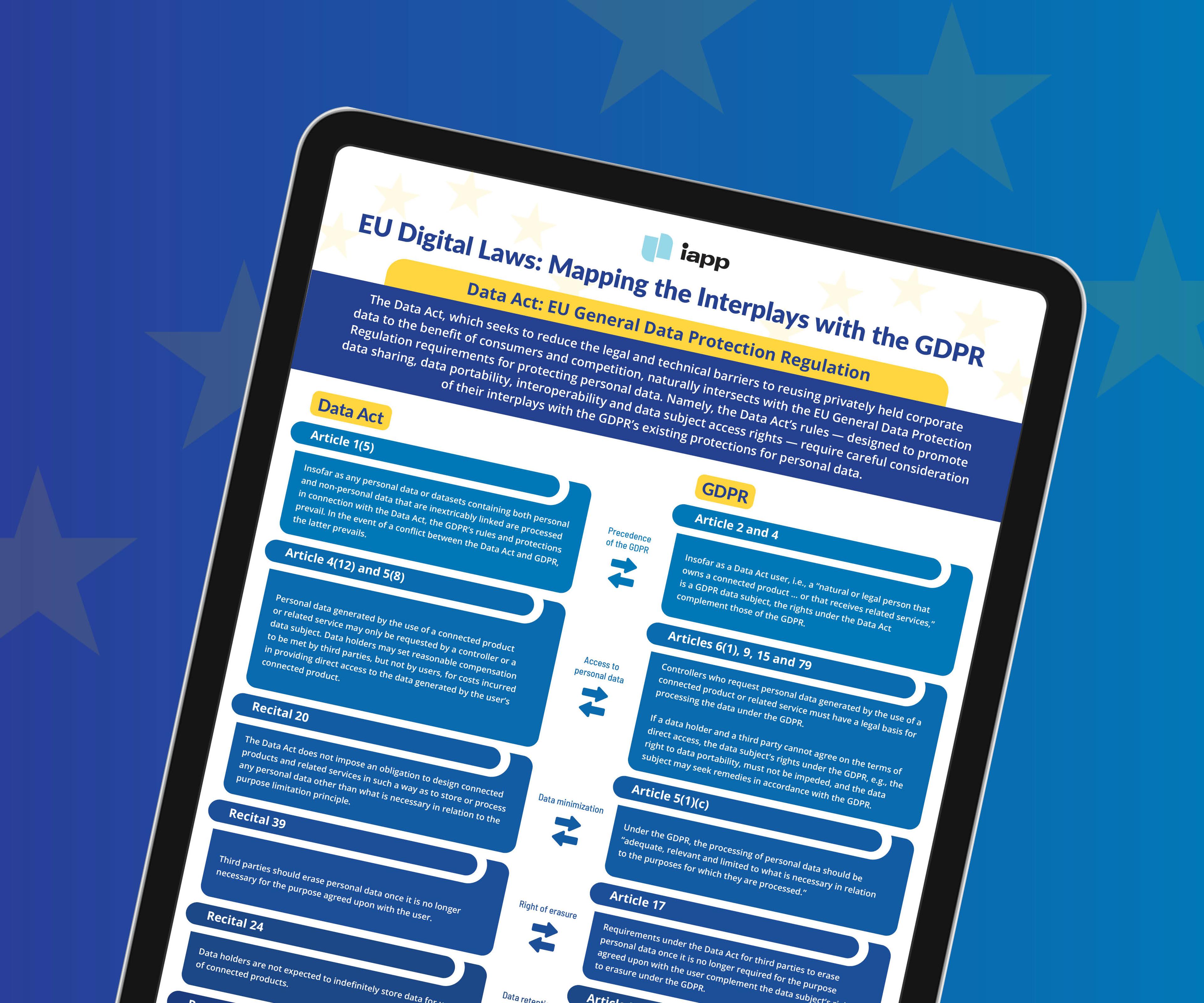INFOGRAPHIC
How To Get Started in Privacy Law

This resource provides insight on increasing your knowledge, visibility and marketability as you get started with a career in privacy law.

Published:
Last updated:
Data privacy is one of the defining social and cultural issues of our time. Topics such as AI and ethics, online tracking and facial recognition are hotly debated, and privacy laws exist to ensure we get outcomes that benefit society as a whole. This resource from the IAPP offers ideas on how to increase your knowledge, visibility and marketability as you get started with a career in privacy law.

This content is eligible for Continuing Professional Education credits. Please self-submit according to CPE policy guidelines.
Submit for CPEs